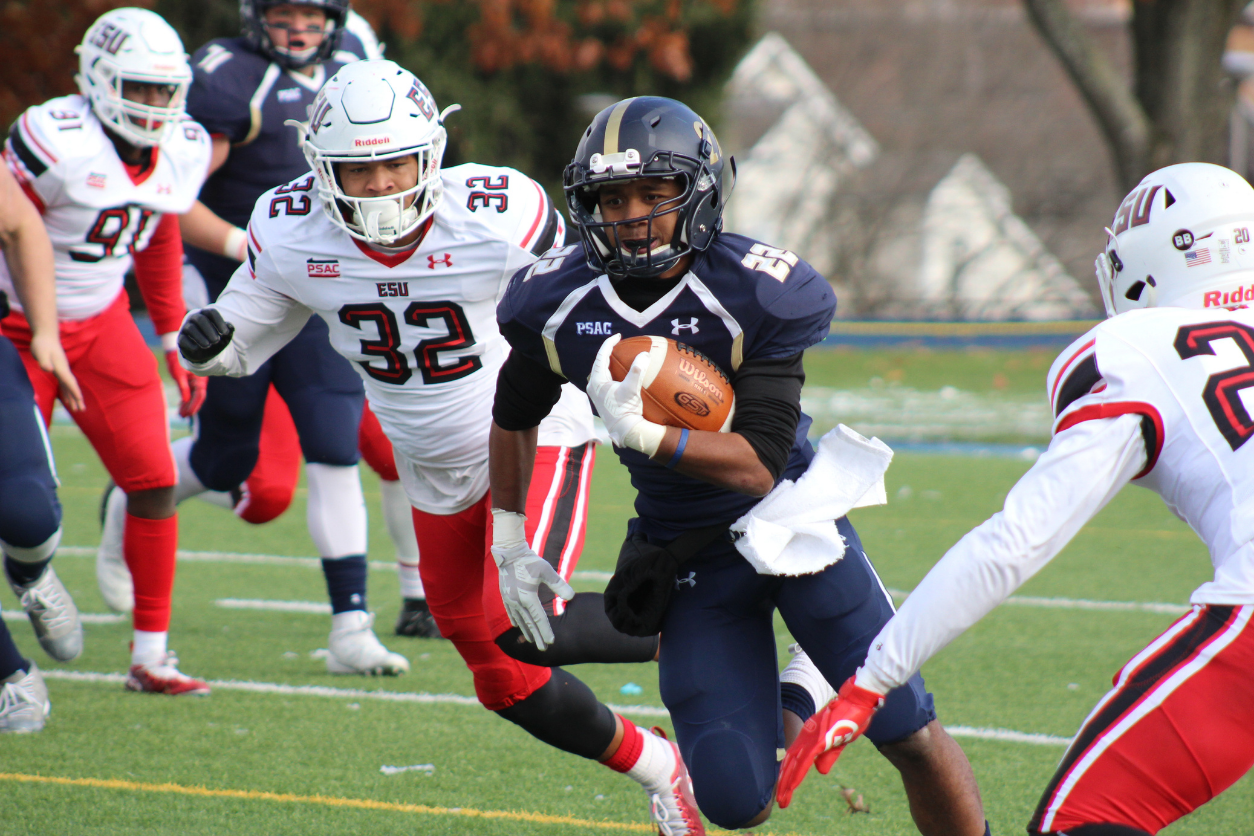Focus on vital information, not on going viral
It’s no secret that social media has dramatically changed the dynamic of college football recruiting. Whether it’s Twitter, Facebook, Instagram, Snapchat, or TikTok, high school student-athletes now have more options than ever to promote themselves to college coaches. In addition, college football programs can easily and quickly promote themselves while coaches have additional avenues to interact with potential recruits (within NCAA regulations, of course).
However, for every upside of using social media to enhance your recruiting, there’s a potential downside too. So, before you rev up your recruiting via social media, make sure you’re aware of how it can just as quickly get you tuned out.
Content Matters
As part of a recruiting process, social media provides you a fast, easy way to share your highlights, stats, and accomplishments (athletic and academic). You can also use it to give coaches a picture of who you are and what you stand for. Share your awards, extracurricular activities, college visits, or even inspirational quotes.
The key to social media content is to make it worth people’s time. In other words, a coach looking for more information about you, as a person or as an athlete, doesn’t want to spend their time wading through cat videos and memes to find it. Make sure everything you post on your social media outlets frames you in a positive light and remember that any superfluous content will only dim that light.
Finally, needless to say, posting, retweeting, liking, sharing, or tagging anything inappropriate, illegal, derogatory, or vulgar will sink your scholarship hopes faster than the time it takes to hit “SEND.” Remember that everything you post is immediately public. Even if you post it in a private account, anyone else who sees it can immediately make it public.
Don’t Let Social Media Become A Distraction
Social media can be a helpful part of your recruiting process. But that’s all it should be; a component part of a broader strategy to raise your recruiting profile and earn a football scholarship. Let it get beyond that and it can become a distraction at best and, in the worst-case scenario, negatively affect your recruiting.
It’s fine to build a base of followers, but you should always keep an eye on how much time you spend on social media as well. Remember that it’s simply there for you to enhance your recruiting profile. Do not let it turn into an animal that you feel must constantly be fed.
On top of that, take the time to ensure you have full control of all your accounts at all times. Don’t let anyone access your phone and never let anyone you don’t trust implicitly have access to your social media accounts. If you’re spending too much time worrying about access to your social media accounts, then it might be time to get off social media.
Finally, avoid being overtaken by fear of missing out (FOMO). It’s good advice to keep track of where you’ve been tagged, retweeted, appeared on someone’s wall, or the comments on your posts. But keep the focus on your recruiting and your content, don’t worry about following everyone that follows you, and don’t waste time constantly glued to your social media accounts. Instead, remember that…
It Requires Balance
In a recent article, one elite football camp coach noted that much of the time recruits once devoted to building face-to-face relationships with coaches or learning concepts, tendencies, formations, or the nuances of the game is now spent on social media. That same coach estimated that perhaps only 20% of the time a player spends on social media will ultimately benefit him as a recruit or player.
On the other side of that equation, consider that 2021 Elite 11 finalist quarterback Luther Richesson has no Facebook, Instagram, Snapchat, or TikTok account. He only has a Twitter account because his coaches suggested it would make communicating with recruiters more convenient. However, Richesson has posted exactly three times; one his Hudl film, one a retweet of his coach, and the third a video touting several high school teammates.
In spite of the lack of content, Richesson does have 351 followers, with roughly a third of those college coaches or assistants. However, Richesson checks his account so infrequently that many of those coaches wind up asking his high school coach to get him to respond.
So where’s the best balance? Well, it depends on where you stand as a recruit. Most elite recruits don’t really need social media to raise their profile and the additional communications with coaches could become overwhelming. Recruits who want to get on a college coach’s radar will definitely want to be more active on social media. Just remember that whatever your needs may be, using social media as part of your recruiting is completely optional. If it’s taking too much of your time, affecting your schoolwork, or simply getting to be overwhelming, take a break and come back when you’re ready. And if you do take a break, just make sure you have other, less intrusive methods for coaches to contact you.
Finally, remember that likes and retweets won’t earn a college football scholarship. Social media is only a tool to promote your recruiting efforts. To earn a scholarship, keep your broader focus on your performance, on the field, and in the classroom, and simply use social media to promote that!
Did you enjoy the article ‘3 Keys To Using Social Media For Football Recruiting’? If so, check out more of our articles HERE.






